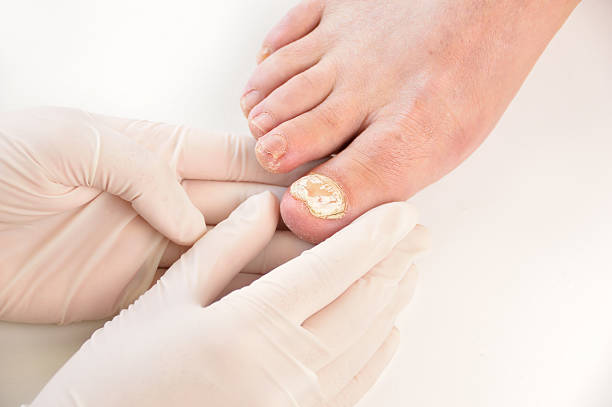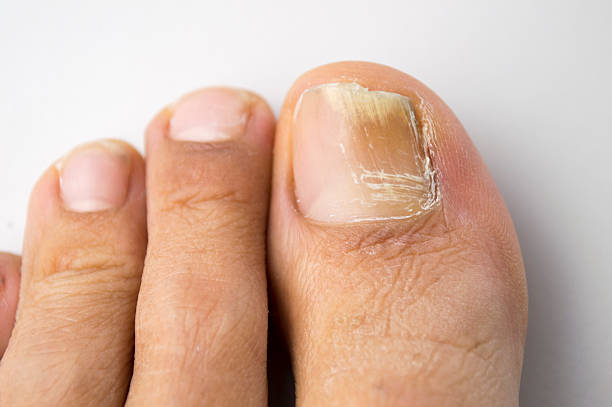
Symptoms and causes of nail fungus:
Nail fungus, also known as onychomycosis, can cause various symptoms and has several potential causes. Here are some common symptoms and causes:
Symptoms:
- Thickened nails: Nails affected by fungus often become thickened and brittle. They may also appear distorted or discolored, with a yellowish, brownish, or white hue.
- Brittle or crumbly nails: Fungal infections can cause nails to become brittle, crumbly, or prone to breaking easily.
- Changes in nail shape: Infected nails may develop an irregular shape, with edges that are jagged or distorted.
- Discoloration: The color of the nail may change, becoming yellow, brown, or white. In some cases, the nail may develop dark spots or streaks.
- Separation of the nail from the nail bed: As the infection progresses, the nail may separate from the nail bed, leading to pain and discomfort.
- Thinning of the nail: In some cases, the infected nail may become thinner than usual.
- Foul odor: Severely infected nails can emit a foul odor.
Causes:
- Fungal infection: The most common cause of nail fungus is a fungal infection, usually by dermatophyte fungi. These fungi thrive in warm, moist environments and can invade the nail through tiny cracks or cuts in the skin around the nail.
- Poor foot hygiene: Not keeping the feet clean and dry, wearing sweaty socks or tight-fitting shoes, and walking barefoot in damp communal areas like swimming pools, gyms, or locker rooms can increase the risk of developing nail fungus.
- Nail trauma: Injuries to the nail, such as stubbing your toe or dropping something heavy on it, can create openings that allow fungi to enter and cause an infection.
- Weakened immune system: People with weakened immune systems, such as those with diabetes, HIV/AIDS, or autoimmune disorders, are more susceptible to fungal infections, including nail fungus.
- Age: The risk of developing nail fungus increases with age, as nails tend to grow more slowly and become thicker and more brittle over time, providing an ideal environment for fungal growth.
- Certain medical conditions: Conditions that affect circulation, such as peripheral artery disease, or conditions that cause poor blood flow to the extremities, like Raynaud’s disease, can increase the risk of nail fungus.
- Family history: There may be a genetic predisposition to nail fungus, with some individuals being more prone to developing fungal infections than others.
If you suspect you have nail fungus or are experiencing any of the symptoms mentioned, it’s essential to consult with a healthcare professional for an accurate diagnosis and appropriate treatment.


